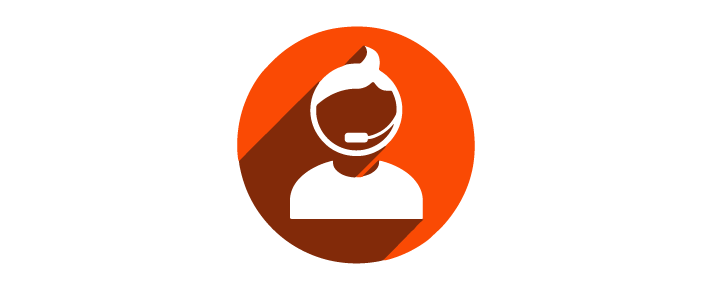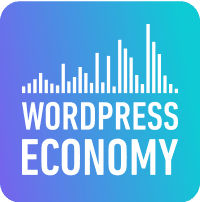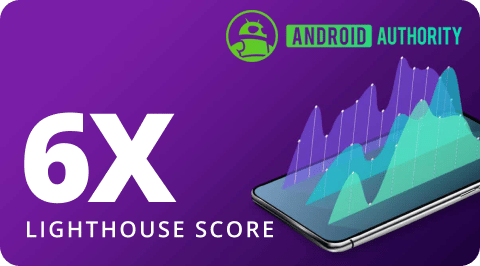
Finely Tuned Consultant – Carrie Dils
At WP Engine, we’re passionate about helping our customers learn and grow. In keeping with that ethos, we proudly present “Finely Tuned Consultant,” a series of interviews with some of the brightest talents in tech, marketing, and (naturally) WordPress.
In this edition of Finely Tuned Consultant, we speak with Fort Worth-based developer Carrie Dils. Her site, (carriedils.com) features numerous tutorials on WordPress and the Genesis framework. Dils also hosts a podcast called OfficeHours in which she and her guests discuss how to put WordPress to work for your business. Read on to hear Dils talk about the importance of accessibility in her theme, Utility Pro, and why she makes sure every client gets a “get run over by a bus” document.
 How did you get started with WordPress?
How did you get started with WordPress?
I was already doing web development and had taken a little time out career-wise. I was working for Starbucks when my manager told me about WordPress. I was talking about redoing a client site that I built in the early 2000s in Classic ASP. It was just awful, but I built this CMS by hand. Calling it a CMS might be a little generous, but there were frontend forms and you could get in touch with the database and pull data dynamically, so I’ll let that count. Anyhow, I was talking about this site and my boss talked to me about WordPress and he said, “it just does that. That’s all built in.” I was kind of floored at the ease with which you could replicate something that had taken so long to do.
So I started diving into WordPress. I’m a self learner, so I just started getting my hands on whatever tutorials I could get. I signed up for Lynda.com and watched Morten’s course on WordPress and that was the end.
Let’s talk about the Genesis Framework. What is it and why should a layperson like me give a hoot?
A layperson like you…I don’t know that you necessarily should give a hoot other than about some of the core features of Genesis. From a client perspective it’s very secure, it’s well-built, well-designed code and it’s created in such a way that it’s good for SEO. That doesn’t mean it does all your homework for you, but it’s a great starting place. And there’s so much already built into the framework that as a developer, I can reuse. So when I need to create a site for you, instead of paying two times in development for me to build from scratch every time, I’m able to take a really solid platform and then build your custom bit out on that.
There is a great deal of content on your site including tutorials and information about how to do cool things with WordPress and Genesis. Why is it important to you to provide all of this information and why aren’t you charging for it?
When I first started that blog on my existing site, I was learning WordPress and learning Genesis as I was blogging it. So the tutorials were really just me trying to take what I learned and then package it and tell somebody about it. If you can teach someone else what you know, it proves you know it.
I did that for a long time and got such positive feedback from it. I guess that’s why I continue to do it. I know that it’s helpful to people and there were other people doing a similar kind of concept when I got started that helped me ramp up more quickly. I like being able to play that role for others.
Why I don’t charge for it? That’s a great question! There’s been a couple of people in the space that recently went to a paywall. My philosophy is multi-pronged: first, I have a lot of affiliate programs that I do. I’ve actually done an experiment and removed banners from my site. I haven’t run any banners on my site this year. I talk about a topic and if an affiliate link is appropriate, I’ll throw that in there. So the site generates pretty decent affiliate income. So that helps cover my time investment in writing the articles. Secondly, I guess last summer or about a year ago, I got the opportunity to come on board with Lynda.com and start teaching some Genesis courses with them. Of course they paid me to do that. I felt like that opportunity would not have been available if I hadn’t been doing what I was doing. So no, it’s not directly monetized, but I feel like it’s led to good authority in my space and has paid off in indirect ways.
You make a point on your site to mention that you don’t abandon clients. Point in fact, you seek to empower them to manage their WordPress sites on their own. Why is that important to you? Have you run into any challenges making sure that happens?
I’ve had so many people—more than I can even keep track of—who come to me and say, “Ugh! My developer just screwed me over” or “ they were a feather in the wind and I have not heard from them.” All these scenarios. I’ve been around for a very long time. I’m not a fly-by-night developer. So communicating that is one thing that has been important. And as far as empowering them to do that themselves, I want them—and maybe this sort of dovetails with the previous point—I want them to feel empowered because when they do, and they know that they don’t have to be nickle and dimed every time they have to do something, I think they end up spending more money with me because they know that I’m not going to screw ‘em over basically.
I send everyone a full list of passwords depending on what I have access to. I put everything in a neat little document. I sort of call it my “get run over by a bus” document. The bottom line is I want people to feel like they can move on from me and not be stuck.
Let’s talk about your theme, Utility Pro. Why is it important?
It’s a badass theme if I do say so myself. It’s important to me that it’s accessible. It meets accessibility requirements. And what that means is there’s actually a governing body that puts a stamp on this is accessible and this is inaccessible. It was important to me to hit that category because it’s very underserved. So, for instance, people that use screen readers or some other sort of assisted technology, it may be a pretty narrow market, but I really don’t think so. I think it’s an underserved population. Coupled with that, there are quite a few countries making it a legal requirement for any site doing business online, their site has to meet certain accessibility standards. So I saw this was an opportunity in those markets to offer a solution where really there was none—at least in the Genesis world. And if you expand it to the larger WordPress world at the time I started that theme, I think there were only eight or 10 accessibility ready themes. So I’m really proud of what I did there and I consulted with quite a few folks that helped make it. I could not have done it on my own. And I’m excited about what that represents.
The other thing I would say about it is that it’s translation ready. This had never really entered my radar of being important until one day when I was talking with a Hebrew developer I met through my podcast. He was telling me about the challenges of working with Genesis. Hebrew reads right-to-left versus, you know, left-to-right like English does. And he was just telling me about the issues—what it took to have a theme translate when there are English words and also flip it to that right-to-left orientation. I was just floored! Say that you gave us the exact same project and we had the exact same skill level. It might take him five hours longer to do a project just because of this extra work. So it was important to me as well to make the theme very friendly to anyone developing in another language, including those right-to-left languages. So there are some bells and whistles. My hope is that any other developer could pick it up and expand on it to make it their own. I’m trying to bill it as the perfect starter theme.
What are you currently working on that excites you the most?
What excites me the most is continuing the [Utility Pro] project. So I released the theme and I’m trying something new in the WordPress world, which is I’m not selling the theme, I’m selling support for the theme. Of course I don’t have the theme released for free on Github or anything, but when you purchase the theme you get an annual license. That license covers your support so you can use the theme 100 times but if you buy a one-time license then one site gets support. I have a developer tier where the theme comes packaged with some pretty nifty developer tools, but I won’t bore you with the technical details of that. I’m very excited about continuing to beef up that developer version and continue to add things there. And then also, hopefully, to spin off a couple more themes off of that.
I know there are some people making money off themes, I’m not one of them. I have probably 500 development hours in Utility Pro and that doesn’t count the other time I’ve paid other people to audit it and do X,Y, and Z. Even though sales were encouraging right out of the gate, it’ll take me a while just to break even on it. Like, maybe a long time! [laughs]. So I don’t know if I’ll continue wholeheartedly down the theme development path. I mean I don’t want to be a theme shop or anything, but this particular theme, I’m excited to be working on it and perhaps offer some ancillary services around it. For instance, the theme itself is accessible, but the second someone uses a theme and writes content or does certain things in their content that aren’t accessible, well, all of a sudden it’s not an accessible site anymore. And people don’t know what those things are. It’s still a very new topic, but people are eager to learn. I think I’d like to provide some education in that space about how, once you’re working with an accessible theme, you can continue to make sure your content is accessible. I’ve done that in some degree just in tutorials on my site. There might be some consulting services available there.
What is the WordPress community in Fort Worth like?
Growing. We have a meet up. Dallas/Fort Worth is frickin’ sprawling. There has historically been some really strong meetups in Dallas but not so much representation on the Fort Worth side. In the past few years, we’ve been beefing up our Fort Worth meetup. We maybe have 200 people that are part of it and then average 20 people to a particular meeting. I would say it’s small, but it’s passionate and growing. This past Fall, we hosted a WordCamp, WordCamp DFW, even though it happened in Fort Worth. That was the first WordCamp DFW. There was a WordCamp Dallas maybe four or five years ago. I think it’s exciting. We may be small in number, but we’ve had a very enthusiastic response from people to keep doing more.











Start the conversation.